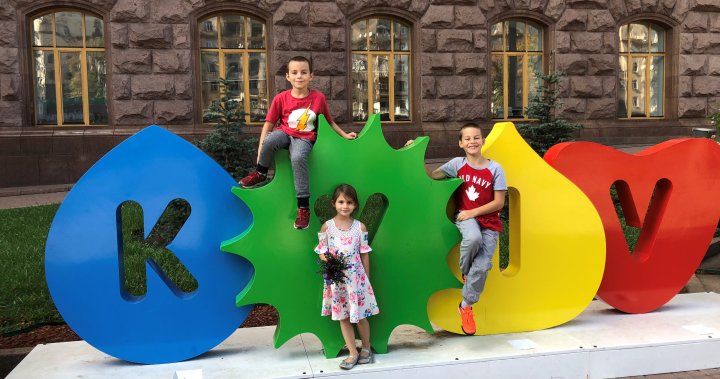
How to talk to your children about the war in Ukraine
Global News
'What I really encourage parents to do is, first of all, check in with your kids — see what they do know and what their understanding of what's happening is.'
For the Salomons family, the war in Ukraine hits close to home. They did missionary work for five years in the eastern European nation, and their youngest child lived there longer than she’s lived in Canada.
“She wakes up every morning and goes ‘Are our friends still alive?'” father Ryan Salomons said.
Although a bit older, the family’s 12- and 14-year-old sons have concerns too.
“Our 12-year-old, he has big questions. He wants to know why humanity is acting this way, what is the purpose of it?”
Registered psychologist Dr. Brent Macdonald said war is a challenging thing for adults — let alone children — to grapple with.
“What I really encourage parents to do is, first of all, check in with your kids. See what they do know and what their understanding of what’s happening is. Because there’s probably going to be a lot of misconceptions.”
Macdonald said kids need to feel safe. He suggested using a map to show where Russia, Ukraine and Canada are in relation to one another, to provide some perspective.
Having the language to understand what’s happening is important too, he said.











